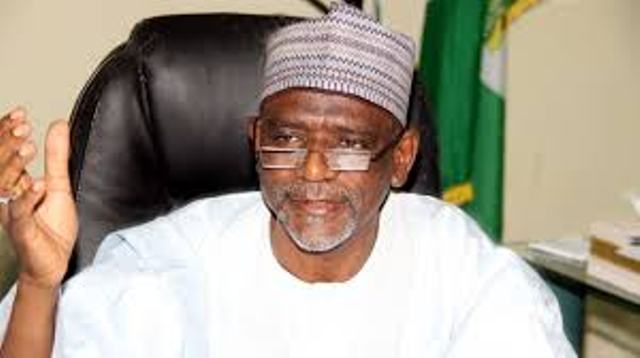
The Minister of Education, Malam Adamu Adamu, on Wednesday urged all stakeholders to collaborate with the Federal and State Governments to fund and boost the quality of education in the country.
Adamu said this in Abuja at the opening of the 63rd National Council on Education (NCE) Meeting with the theme: Funding of Education for the Achievement of Education 2030 Agenda.
The minister noted that adequate funding was central to the efficient and effective education in the country.
He said that the budget for education could not take care of the need of the sector hence the need for all stakeholders to come in to assist in increasing the funding of the sector.
The minister said that the bane of the country’s educational growth and development at all levels was poor funding and which required the commitment of the three tiers of government and other stakeholders.
He said that with the population of over 170 million people in which 45 per cent are below 15 years, the burden of education had become overwhelming on the three tiers of government.
Adam said that the 2030 agenda for Sustainable Development was aimed at wiping out poverty through Sustainable Development by 2030 and attend to the “unfinished business” of Education for All (EFA) goals.
According to him, to achieve the goals of education 2030, conscious efforts must be made to increase funding of education.
He said that the challenge therefore raises some fundamental questions which all stakeholders must address to increase the education funding in this country.
“Since the Federal Government has committed 6 per cent of its 2017 budget to education, which is far below the UN benchmark, what is the responsibility of the states, parents and multi-national companies?
“ It is their responsibility to bridge the gap and provide the education sector a much needed life line.
“ Secondly, what necessary tracking mechanisms are put in place to guarantee judicious and effective use of the funds? These are the questions that must be addressed.’’
Adamu said that it was time the Federal Government, states, FCT, Local Government councils, development partners, civil society organisations, labour unions, media and all stakeholders interface to address the challenges.
He called on the stakeholders to formulate and implement policies required to achieve the Education 2030 agenda.
The minister identified progresses made as a result of policies in previous NCE to include the expansion of access to all levels of education, curtailing out-of-school syndrome and the security and safety of educational institutions.
According to him, other progress made were interventions in the delivery of adult and non-formal education, innovation in the conduct of examination by the Joint Admission Matriculation Board (JAMB), among others.
Adamu also commended the JAMB registrar, Prof. Ishaq Oloyede, for bringing probity to the sector through the remittance of over N15 billion.
He said JAMB had continued to record growth in the sector through its monitoring mechanism to guarantee credibility of the education system.
The minister also said that efforts had been made to improve teacher capacity and professional development with the training of 800 graduate teachers.
On the out-of-school syndrome, the minister said the present administration had carried out massive school census to ascertain the number of children attending schools across the federation.
He, therefore, applauded the government’s effort in its National Enrolment Drive Campaign to improve enrolment, retention and completion rates which he said had helped to address the huge number of out-of-school children in the country.
Earlier, Minister of State for Education, Prof. Anthony Anwukah stressed the need for more funding of education, saying that it required collective efforts of stakeholders to get this done.
He said that the low educational budget was inadequate for the essentials of education in the country, hence the need for it to be increased.
Anwukah, however, called on all stakeholders to collaborate with the Federal Government to advance the course of education quality and investment in the country.
The News Agency of Nigeria (NAN) reports that the NCE is the highest policy making body aimed at addressing challenges and proffering solutions to problems confronting the education sector.
The 63rd session had in attendance Commissioners of Education in the 36 states and FCT, Heads of parastatals in the education sector and stakeholders from private organisations. (NAN)